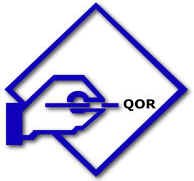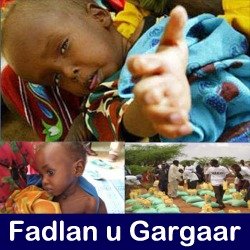Dear Brothers and Sisters, for centuries, Europeans dominated the African continent. The white man arrogated to himself the right to rule and to be obeyed by the non-white; his mission, he claimed, was to “civilize” Africa. Under this cloak, the Europeans robbed the continent of vast riches and inflicted unimaginable suffering on the African people.
All this makes a sad story, but now we must be prepared to bury the past with its unpleasant memories and look to the future. All we ask of the former colonial powers is their goodwill and co-operation to remedy past mistakes and injustices and to grant free thinking and independence to the colonies in Africa as they did in South Asia and far Asia as well.
It is clear that we must find an African solution to our problems, and that this can only be found in African unity. Divided we are weak; united, Africa could become one of the greatest forces for good in the world.
Although most Africans are poor, our continent is potentially extremely rich. Our mineral resources, which are being exploited with foreign capital only to enrich foreign investors, range from gold and diamonds to uranium and petroleum. Our forests contain some of the finest woods to be grown anywhere. Our cash crops include cocoa, coffee, rubber, tobacco and cotton. As for power, which is an important factor in any economic development, Africa contains over 40% of the potential water power of the world, as compared with about 10% in Europe and 13% in North America. Yet so far, less than 1% has been developed. This is one of the reasons why we have in Africa the paradox of poverty in the midst of plenty, and scarcity in the midst of abundance.
Never before have a people had within their grasp so great an opportunity for developing a continent endowed with so much wealth. Individually, the independent states of Africa, some of them potentially rich, others poor, can do little for their people. Together, by mutual help, they can achieve much. But the economic development of the continent must be planned and pursued as a whole. This loose confederation designed only for economic co-operation would not provide the necessary unity of purpose. Only a strong political union can bring about full and effective development of our natural resources for the benefit of our people.
The political situation in Africa today is heartening and at the same time disturbing. It is heartening to see so many flags hoisted in place of the old; it is disturbing to see so many countries of varying sizes and at different levels of development, weak and, in some cases, almost helpless. If this terrible state of fragmentation is allowed to continue it may well be disastrous for us all.
There are at present some 48 states in Africa, excluding some of the Islands in Africa, and those Islands not yet free. No less than nine of these states have a population of less than three million. Can we seriously believe that the colonial powers meant these countries to be independent, viable states? The example of South America, which has as much wealth, if not more than North America, and yet remains weak and dependent on outside interests, is one which every African would do well to study.
Critics of African unity often refer to the wide differences in culture, language and ideas in various parts of Africa. This is true, but the essential fact remains that we are all Africans, and have a common interest in the independence of Africa. The difficulties presented by questions of language, culture and different political systems are not insuperable. If the need for political union is agreed by us all, then the will to create it is born; and where there’s a will there’s a way.
Today, the present leaders of Africa have already shown a poor willingness not to consult and seek advice among themselves. Africans should, indeed, begun to think continentally. They must realize that they have much in common, both in their past history, in their present problems and in their future hopes. To suggest that the time is not yet ripe for considering a political union of Africa is to evade the facts and ignore realities in Africa today.
The greatest contribution that Africa can make to the peace of the world is to avoid all the dangers inherent in disunity, by creating a political union which will also by its success, stand as an example to a divided world. A Union of African states will project more effectively the African personality. It will command respect from a world that has regard only for size and influence. The scant attention paid to African opposition to the French atomic tests in the Sahara, and the ignominious spectacle of the U.N. in the Congo quibbling about constitutional niceties while the Republic was tottering into anarchy, are evidence of the callous disregard of African Independence by the Great Powers.
We have to prove that greatness is not to be measured in stockpiles of atom bombs. I believe strongly and sincerely that with the deep-rooted wisdom and dignity, the innate respect for human lives, the intense humanity that is our heritage, the African race, united under one federal government, will emerge not as just another world bloc to flaunt its wealth and strength, but as a Great Power whose greatness is indestructible because it is built not on fear, envy and suspicion, nor won at the expense of others, but founded on hope, trust, friendship and directed to the good of all mankind.
The emergence of such a mighty stabilizing force in this strife-worn world should be regarded not as the shadowy dream of a visionary, but as a practical proposition, which the peoples of Africa can, and should, translate into reality. There is a tide in the affairs of every people when the moment strikes for political action. Such was the moment in the history of the United States of America when the Founding Fathers saw beyond the petty wranglings of the separate states and created a Union. This is our chance. We must act now. Tomorrow may be too late and the opportunity will have passed, and with it the hope of free Africa’s survival.
On the other hand, when it cames to continental government for Africa,we have seen, in the example of the United States how the dynamic elements within society understood the need for unity and fought their bitter civil war to maintain the political union that was threatened by the reactionary forces. We have also seen, in the example of the People’s Republic of China, how the forging of continental unity along with the retention of national sovereignty by the federal states, has achieved a dynamism that has lifted a most backward society into a most powerful unit within a remarkably short space of time. From the examples before us, in Europe and the United States of America, it is therefore patent that we in Africa have the resources, present and potential, for creating the kind of society that we are anxious to build. It is calculated that by the end of this twenty first century the population of Africa will probably exceed.
Our continent gives us the second largest land stretch in the world. The natural wealth of Africa is estimated to be greater than that of almost any other continent in the world. To draw the most from our existing and potential means for the achievement of abundance and a fine social order, we need to unify our efforts, our resources, our skills and intentions. . .
At present most of the African states are moving in directions which expose us to the dangers of imperialism and neocolonialism. We therefore need a common political basis for the integration of our policies in economic planning, defense, foreign and diplomatic relations. That basis for political action need not infringe the essential sovereignty of the separate African states. These states would continue to exercise independent authority, except in the fields defined and reserved for common action in the interests of the security and orderly development of the whole continent.
In our view, therefore, a united Africa – that is, the political and economic unification of the African Continent – should seek three objectives.
Firstly, we should have an over-all economic planning on a continental basis. This would increase the industrial and economic power of Africa. So long as we remain balkanized, regionally or territorially, we shall be at the mercy of colonialism and imperialism. The lesson of the South American Republics vis-à-vis the strength and solidarity of the United States of America is there for all to see. . .
Secondly, we should aim at the establishment of a unified military and defense strategy. I do not see much virtue or wisdom in our separate efforts to build up or maintain vast military forces for self-defense which, in any case, would be ineffective in any major attack upon our separate states. If we examine this problem realistically, we should be able to ask ourselves this pertinent question: which single state in Africa today can protect its sovereignty against an imperialist aggressor?
. . .The third objective which we should have in Africa stems from the first two which I have just described . . . a unified foreign policy and diplomacy to give political direction to our joint efforts for the protection and economic development of our continent . . . The desirability of a common foreign policy which will enable us to speak with one voice in the councils of the world, is so obvious, vital and imperative that comment is hardly necessary.
We are confident that it should be possible to devise a constitutional structure applicable to our special conditions in Africa and not necessarily framed in terms of the existing constitutions of Europe, America or elsewhere, which will enable us to secure the objectives I have defined and yet preserve to some extent the sovereignty of each state within a Union of African states.
We might erect for the time being a constitutional form that could start with those states willing to create a nucleus, and leave the door open for the attachment of others as they desire to join or reach the freedom which would allow them to do so. The form could be made amenable to adjustment and amendment at any time the consensus of opinion is for it. It may be that concrete expression can be given to our present ideas within a continental parliament that would provide a lower and an upper house, the one to permit the discussion of the many problems facing Africa by a representation based on population; the other, ensuring the equality of the associated states, regardless of size and population, by a similar, limited representation from each of them, to formulate a common policy in all matters affecting the security, defense and development of Africa. It might, through a committee selected for the purpose, examine likely solutions to the problems of union and draft a more conclusive form of constitution that will be acceptable to all the independent states.
The survival of free Africa, the extending independence of this continent, and the development towards that bright future on which our hopes and endeavors are pinned, depend upon political unity.
Under a major political union of Africa there could emerge a United Africa, great and powerful, in which the territorial boudoirs which are the relics of colonialism will become obsolete and superfluous, working for the complete and total mobilization of the economic planning organization under a unified political direction. The forces that unite us are far greater than the difficulties that divide us at present, and our goal must be the establishment of Africa’s dignity, progress and prosperity.
Truly Yours
Sharmarke Mohamed Hashi Gaani
Acting Chairman of the Somali People’s Party (S.P.P)
Email:sgaani@gmail.com





































i read the articles you wrote and really enjoyed it but the problem is that it aint gonna happen soon. i personally always thought about Africa to be united but it aint easy. the other thing is we need to solve the problem in our own country first. lets unite our own people before we think about others. thanks